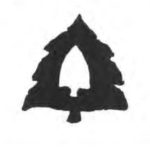why do archaeology
reasons to perform archaeological research
There are many reasons why we do archaeology, some esoteric and some practical. Humans are very curious primates, and the past holds a great fascination to many of us. Learning from the mistakes of the past is a commonly held theme. We are tied to the past through religion, nationalism, family, land, and so on, and an understanding of the past benefits us all. Some of the reasons we do archaeology as follows:
- In western science (there are other sciences) knowledge is sought for its own sake. As scientists, anytime we can learn something new, we feel that we have made a contribution. What is learned may not have apparent immediate practical value, but it may be the missing piece of a different puzzle. Pure research is valued not only for what is learned but also for what others can do with the new information to gain further understanding.
- The diversity of human behavior is truly immense and very difficult to predict. Anything we can learn about past human behavior can help us to understand present and even perhaps future behavior. Increasing the breadth of human understanding an identity are important goals in archaeology.
- All peoples believe that they are superior to other peoples, a phenomenon known as ethnocentrism. Throughout human history, societies have used this belief as justification for the subjugation and destruction of other peoples and groups. For example, when Europeans encountered the remains of ancient civilizations, the remains were attributed to ancient European peoples rather than the indigenous groups of the region. Ethnocentrism led to the belief that native groups were too inferior to have created them. Archaeologists have, over the years, investigated ancient ruins and cultures and established that native cultures were quite sophisticated and were able to develop complex civilizations. Great Zimbabwe, an ancient city is eastern Africa, is an excellent example.
- Many societies have lost some or much of their identity. Rediscovering the past of a group (understanding Native American prehistory for the benefit of Native Americans) can serve both for outsiders to gain a greater understanding of the group and for the group to better understand itself. Both results are quite beneficial.
- Like biological diversity, cultural diversity is ultimately important to the survival of the species. If we were all the same, either biologically or culturally, life would be very boring and highly precarious. Diversity is strength; to discover and achieve cultural diversity is an important goal of archaeology.
- Westerners often arrogantly assume that “primitive” (i.e. nonindustrialized) peoples, past and present, have little to offer “modern” industrialized societies. It is not understood that many societies have (and had) a far more extensive knowledge of the natural world than do industrialized societies, who tend to be isolated from, and ignorant of, nature. The same is true of traditional philosophy, art, and science. As western civilization expands, more and more traditional knowledge is lost. Archaeology can recover and document past knowledge and practices, as well as facilitate application of that knowledge to present needs.
- Archaeology studies past interactions of culture and environment. Archaeologists expand considerable effort learning about prehistoric environments. This information can be used in planning for future events, such as 100-year floods and long-term environmental change.
It is often believed that humans have a particular response to certain conditions, but there is no reason to expect that all people have responded the same way in the past. By understanding the responses of past peoples to various conditions, we can better anticipate and plan our own responses. - Most species that have ever lived are extinct. In addition, all of the domesticated plants and animals upon which we are so reliant were modified from species that lived in the past. One goal of archaeology is to discover and archive the biological diversity of the past. For example, an understanding of the genetic origin and diversity of corn (a critical plant to our culture), plus the preservation of that diversity, could prevent its elimination by some disease or other disaster.
- Archaeology has major commercial value. Archaeology provides much raw material for movies, and archaeologists are often depicted in films and on television. In addition, archaeology and anthropology are widely used in advertising. Without archaeologists to discover the past, industry could not use it.
- The study and interpretation of archaeology are critical to many countries that are economically dependent on tourism. A number of these countries (Egypt, Greece, Mexico, Peru) focus their tourist industries on their cultural heritage and archaeological resources to attract visitors. The same is true in some parts of the United States (e.g., Arizona, Colorado, Pennsylvania, South Dakota, Virginia).
- Lastly, archaeology is fun! It can be romantic, exciting, fun to talk about, and the discoveries can be thrilling. It is an excellent profession and avocation. There is so much more to learn.
Work Cited
Sutton, Mark Q. and Brooke S. Arkush
2014 Archaeological Laboratory Methods: An Introduction. 6th ed. Kendall Hunt Publishing Company, Dubuque, IA.

The
Maine
Archaeological
Society
Contact Information
The Maine Archaeological Society
P.O. Box 982
Augusta, Maine 04332-0982